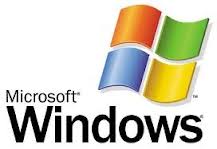Is Microsoft’s Windows unit, likely to become the operating systems division, fighting a losing battle with falling profit margins or a cash cow that can bounce back if just a little goes right?
The answer depends on what analyst guesstimate you want to believe. Stifel Nicolaus analyst Brad Reback downgraded Microsoft shares on Tuesday based on the theory that Windows average selling prices are going to fall. As those prices fall so does Microsoft’s profitability. Analysts were spooked by Microsoft’s fiscal fourth quarter, which indicated Windows weakness.
Reback said that Microsoft will aim to boost demand for Windows 8, gain tablet share and entice corporate upgrades and drive average selling prices from about $43 today to $39 in fiscal 2015. He said:
We are increasingly more concerned that pricing pressures and elevated Windows sales and marketing expenses could be a meaningful headwind to revenue and EPS growth in coming years.
Reback noted that Microsoft’s Windows business is driven by enterprise agreements and challenged by consumers. Bottom line is that Microsoft’s enterprise side of the house can’t keep prices up forever.On the flip side, Morgan Stanley analyst Keith Weiss noted that Microsoft just needs a few likely bounces to restore Windows profitability.
A tough FY4Q13 brought investor concerns on the durability of earnings from the Window’s division to a head. Our deep dive analysis suggests improving PC shipments combined with modest tablet share gains should stabilize the Windows division EPS contribution and improve sentiment.
The big question is whether Microsoft can gain modest tablet market share. Weiss added that Office and some inroads to tablet buyers can stabilize Windows profits. Corporate buying could also help tablet share. Overall, it’s likely that Microsoft can achieve modest gains in tablets.
As for PC shipments, Weiss’ scenario didn’t include a return to growth days for laptops and desktops. Instead, the PC market just has to stabilize. That outcome also seems likely, but it’s unclear whether the PC market has bottomed. A move from XP to Windows 7 and Windows 8 in the enterprise will hold the PC fort, but once that migration is complete we’ll really know what the post PC era looks like for Windows.































 +91 9909960054
+91 9909960054